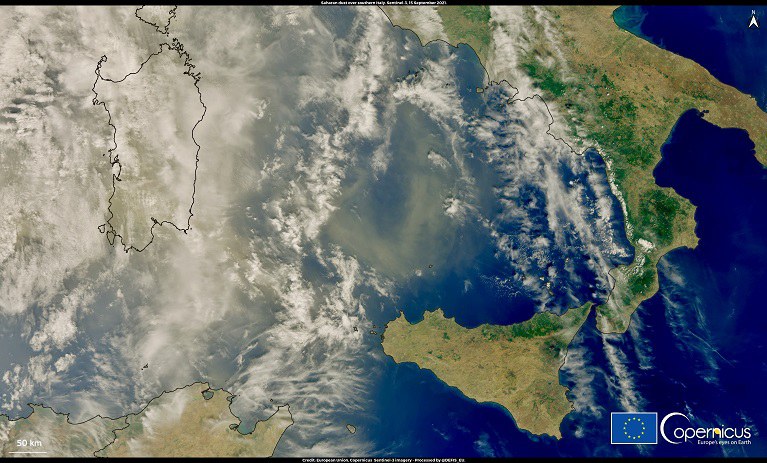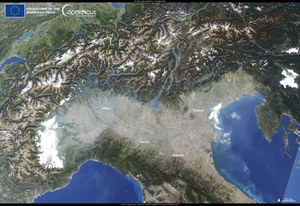Air quality in Italy: new forecasting and monitoring tools thanks to the Copernicus programme
Estimate the quantity of Saharan dust in the atmosphere in a timely and homogeneous manner throughout the national territory, predict the presence of pollutants in the air through stronger collaboration between the institutional bodies that manage the forecasting tools, detect with greater precision the presence of pollens and in particular those of the allergenic species most widespread in the Mediterranean areas.
After the fruitful collaboration started with the previous agreement, the cooperation between the European Center for Medium-Term Weather Forecasts (ECMWF) and an even broader Italian partnership, led by ISPRA, is confirmed with new objectives.
Through the National Collaboration Program (NCP) the European Union intends to promote the use of Copernicus instruments for atmospheric monitoring (CAMS) among Member States also on a regional and local scale. In the aftermath of the publication of the European directive which updates air quality standards for pollutants throughout the EU, the partnership brings together all the main institutional actors involved in monitoring and forecasting air quality in Italy to adopt the best tools currently available at European level.
Among the various uses, the use of CAMS products will help to optimize the measurement of desert dust on the national territory. In fact, similar to most countries
of southern Europe, Italy is frequently affected by episodes of transport of such dust which affects the quality of the air and adds to the particulate material of anthropic origin, sometimes leading to the limits imposed by the European directive being exceeded.
Italy participates in the partnership with a working group made up of ISPRA, Enea, Cnr-Isac, University of Rome-Tor Vergata, Italian Consortium of the Copernicus Academy and 8 of the 21 regional/provincial agencies for environmental protection (Emilia -Romagna, Lombardy, Campania, Liguria, Piedmont, Veneto, Umbria, Valle d'Aosta). The agreement has a duration of three years. The planning underlying the agreement was born within the National Copernicus Users Forum.


